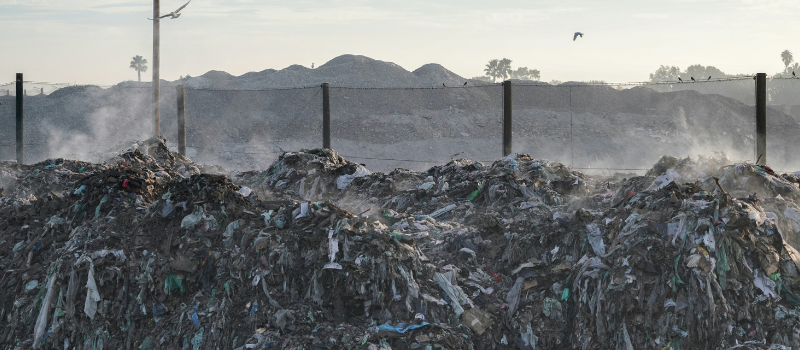The British government wanted fewer cobras in Delhi, so they offered money for every dead cobra brought to them. Sounds like a reasonable idea, right? Pay people to solve the problem, watch cobra numbers plummet, celebrate your administrative genius.
Not quite. Within months, enterprising locals were breeding cobras specifically to kill them for cash.
When the government realized what was happening and cancelled the program, people released their now-worthless cobra farms into the wild. Delhi ended up with much more cobras than when the whole mess started.
This is the Cobra Effect: where your solution doesn't just fail to fix the problem — it makes the problem exponentially worse.
It's the universe's way of laughing at your good intentions while teaching you an expensive lesson about unintended consequences. You thought you were being smart and proactive, but you actually just created a perverse incentive system that rewards exactly the behavior you were trying to eliminate.
The Cobra Effect happens everywhere. We see corporate policies that encourage the behavior they're trying to stop, environmental programs that destroy more ecosystems, and personal decisions that create the exact problems you were trying to avoid.
Your good intentions are probably paving the road to some very specific hell right now. Fortunately, you can do something about it (which is exactly what you wanted to hear).
What Is the Cobra Effect?
The Cobra Effect is when an attempted solution to a problem makes the problem worse, often creating perverse incentives that reward the exact behavior you're trying to eliminate.
This is a fundamental feature of how humans respond to incentives versus intentions. Your brain doesn't care what you meant to accomplish. It cares about what you're actually rewarding.
The Cobra Effect happens when you focus on symptoms instead of systems.
You see a problem, create a direct response to that problem, and completely ignore how people will game your solution for their own benefit. You're thinking linearly while everyone else is thinking strategically.
It's different from regular failure because the solution actively makes things worse. Regular failure is when your diet doesn't work and you stay the same weight. Cobra Effect failure is when your diet creates an eating disorder that makes you gain more weight than when you started.
The cruel irony is that Cobra Effects often work exactly as designed in the short term. People did bring in dead cobras. The immediate metric looked great. It's only later that you realize you've created a monster that's now completely out of your control.
The Cobra Effect proves that good intentions are worthless without systems thinking. Your heart can be in the right place while your brain creates incentive structures that reward the opposite of what you actually want.
The Psychology Behind Creating Perverse Incentives

Your brain is terrible at predicting how people will respond to the systems you create. You assume everyone thinks like you do, wants what you want, and will use your solutions exactly as intended.
This is adorable and completely wrong.
- Humans respond to incentives, not intentions. You can have the purest motives in the world, but if your system rewards bad behavior, people will engage in bad behavior. They're not evil — they're just responding rationally to the structure you created. When you pay people for dead cobras, they breed cobras. When you base teacher evaluations on test scores, teachers teach to the test. When you reward quantity over quality, you get lots of garbage.
- The planning fallacy makes you overconfident in your solutions. Your brain assumes your first idea will work perfectly and that any problems are minor details to be worked out later. You focus intensely on the intended outcome while being completely blind to alternative paths people might take to get your reward.
- Good intentions actually make the problem worse because they create moral blind spots. When you know your heart is in the right place, you stop questioning your methods. "I'm trying to help the environment/reduce crime/improve education" becomes a shield against criticism, even when your approach is creating the opposite results.
- You think in straight lines instead of systems. You see Problem A and create Solution B, assuming a direct path from B to A-solved. But humans are creative, adaptive, and incredibly good at finding loopholes you never imagined. They'll turn your solution into an opportunity that serves their interests, not yours.
- This is why systems thinking matters more than good intentions. You need to ask not just "what do I want to happen?" but "what are all the ways people could respond to this incentive structure, including ways that completely defeat my purpose?"
Your brain evolved to trust people who share your goals, but strangers with different priorities will absolutely exploit any system you create if it benefits them.
Classic Examples of the Cobra Effect

Every well-meaning policy, corporate initiative, or personal decision has the potential to create exactly the opposite of what you intended. Here are examples of the Cobra Effect in your everyday life:
- Government Policies That Made Problems Worse: The War on Drugs created massive black markets and turned addiction into a criminal justice problem instead of a health problem. Prohibition didn't reduce alcohol consumption — it just made drinking more dangerous and profitable for criminals. Rent control laws designed to make housing affordable actually reduce housing supply and drive up prices in the long run.
- Corporate Solutions That Backfired: Wells Fargo incentivized employees to open new accounts, so workers created millions of fake accounts for existing customers. Companies that reward "zero defects" often just encourage employees to hide problems instead of fixing them. Performance reviews based on individual metrics destroy teamwork because helping colleagues hurts your own numbers.
- Environmental Programs Gone Wrong: California's plastic bag ban led to a massive increase in small trash bag sales as people had to buy what they used to get free. Ethanol fuel subsidies designed to reduce emissions actually increased food prices and used more energy than they saved. Recycling programs often ship waste to countries with worse environmental standards, making the global problem worse.
- Personal Life Examples Everyone Recognizes: Helicopter parenting creates adults who can't handle basic life challenges. Participation trophies meant to boost self-esteem can reduce motivation to actually improve. Extreme dieting often leads to binge eating and more weight gain than before you started.
- Social Media and Technology: Platforms designed to "connect people" created addiction, echo chambers, and social isolation. Dating apps meant to help people find relationships turned dating into a numbers game that makes meaningful connections harder. Screen time limits for kids often just make them more obsessed with getting around the restrictions.
It’s the same pattern. You focus on the metric instead of the goal, and people optimize for the metric in ways that completely defeat the goal.
How to Spot Potential Cobra Effects (Before They Bite You)

The best time to catch a Cobra Effect is before you've accidentally bred an army of problems you didn't mean to create. These red flags can save you from becoming the star of your own unintended consequences horror story:
Ask the "What If People Are Selfish?" Question: If someone wanted to game this system for their own benefit, how would they do it? Assume people will find the easiest path to your reward, even if it completely defeats your purpose. If you're paying for quantity, expect people to sacrifice quality. If you're measuring activity, expect busy work that accomplishes nothing.
Look for Metric vs. Goal Misalignment: When your measurement becomes more important than your actual objective, you're heading for trouble. Are you rewarding what you can easily count instead of what you actually want? Test scores aren't education, clicks aren't engagement, and compliance isn't safety.
Check for Short-Term vs. Long-Term Conflicts: Solutions that work immediately but create bigger problems later are classic Cobra Effect setups. Does your fix address symptoms while ignoring root causes? Are you creating dependencies instead of solving problems? Quick wins that require ongoing intervention are usually red flags.
Watch for "Too Good to Be True" Enthusiasm: When everyone loves your solution immediately, be suspicious. Real solutions to complex problems usually involve trade-offs and some resistance. If your idea faces zero pushback, you might be missing something important about how it could go wrong.
Test the Worst-Case Scenario: What happens if your solution works too well? What if everyone does exactly what you're incentivizing? Sometimes success is more dangerous than failure because it scales the unintended consequences along with the intended ones.
Question Your Own Blind Spots: What assumptions are you making about how people will behave? Are you designing for ideal people or actual people? Your solution needs to work with humans as they are, not as you wish they were.
Think Like a System, Not Just a Problem-Solver
Good intentions without systems thinking is just expensive virtue signaling. Every solution you create becomes part of a larger system where people will respond to your incentives in ways you never imagined.
Before you implement your next brilliant fix, ask yourself: "How could this backfire? What behaviors am I accidentally rewarding? What would happen if everyone did exactly what I'm incentivizing?"
The road to hell isn't just paved with good intentions — it's engineered by people who thought their first idea was bulletproof.
Stop creating cobra farms. Start thinking three moves ahead.
Subscribe to Hold That Thought for more ways to avoid outsmarting yourself into bigger problems.
.png)

.png)
